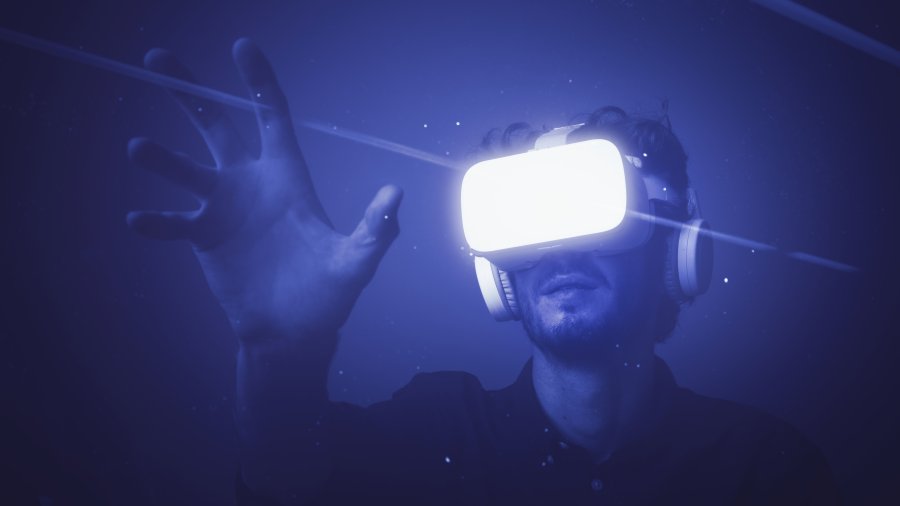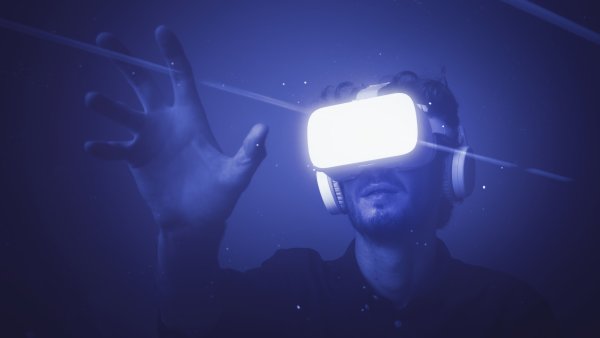
The Pioneer of Augmented Reality: Metaverse Will Be Far Worse Than Social Media

With Mark Zuckerberg renaming his company to “Meta”, the upcoming focus of the technology industry was made clear. It is probably going to be all about the “Metaverse”. Along with AR (augmented reality), the metaverse wants to seamlessly integrate all our physical perceptions in reality with our virtual self. However, this technology carries several grave threats to life as we know it.
With the help of AR, any scenery that you see will be filled with activities, objects, places, and persons that do not actually exist in reality. But they will be so smoothly perceived, that we won’t be able to tell the difference. So what exactly is terrifying about it? This is what Louis Rosenberg, one of the pioneers of AR has to say about it.
Changing The Meaning Of Reality
The first thing that has left Rosenberg concerned is that if AR does achieve that seamlessness, then every societal aspect will be modified. During the early tests of AR, the technology was found to double human performance levels. But the worrying part was the test subject’s reactions after trying it out.
All of them were extremely happy and excited about the experience. But it was not because of their boost in productivity. Rather, it was because the technology lets them interact with virtual items as if they were real. It was like magic was happening in real life.
But this fascination with the technology means that the biggest platform providers can use AR legitimately to influence basic infrastructure.
A Fantasy Walk Or A Dystopian One?
Today’s society has numerous technological layers that control, moderate, and keep track of all that we do. It can be which people we speak with to the information and news that reaches us. Rosenberg says that our lives are mediated, in the truest sense of the word. These layers are often used as manipulative tools. The industry calls this “marketing”, and not abuse. AR can easily amplify this to unprecedented layers.
Imagine looking at passers-by and seeing an information bubble on top of their heads. It can have their hobbies, interests, preferences, etc. that theoretically will help you in communication. Now, as with all technology, assume there’s a paid premium level of this feature available. It will let the user see bold words like “Immigrant”, or “Alcoholic”. The worst part of this is that the people being labeled may not even know that these words are floating above their heads.
In the second instance, such readily available information will let stores and businesses easily get your preferences when you enter their establishment. Virtual overlays like this can easily be used to amplify political division or ostracize specific groups. Secondly, personal information will no longer be “personal”. Many of us may accept it as the price to pay for being a digitally connected individual. But will this world be better this way?
Read: Why Zuckerberg’s Metaverse Is A Dangerous Idea
The Trap Of The Metaverse
As for the metaverse, the world completely created by AR might take away the final reliable reality – that which we gain from talking with another human face-to-face, or just stepping out and experiencing the world.
We can’t intentionally choose not to see the homeless when we walk in the public, even though we may choose to ignore or avoid them. But with AR, there can be settings that will let you choose what you want to see. So, a collective and shared view available to everyone might cease to exist. Of course, those who can’t afford AR headsets will no longer be connected to “the world”.
Read: The US Army Is Trialing Augmented Reality Goggles For Combat Dogs
Finally, if AR reaches the heights predicted, it will become just as “optional” as the internet or the smartphone today. It means that the majority of us will stay plugged into the metaverse (almost as if that will be the only world).
It sounds very ominous, doesn’t it? However, this technology is going to be world-changing for humanity. Rosenberg concludes that it can enrich the meaning and abilities of humanity to unprecedented levels. But, as with all revolutionary inventions, these too need carefully thought-out precautionary measures.
This content was originally published here.


